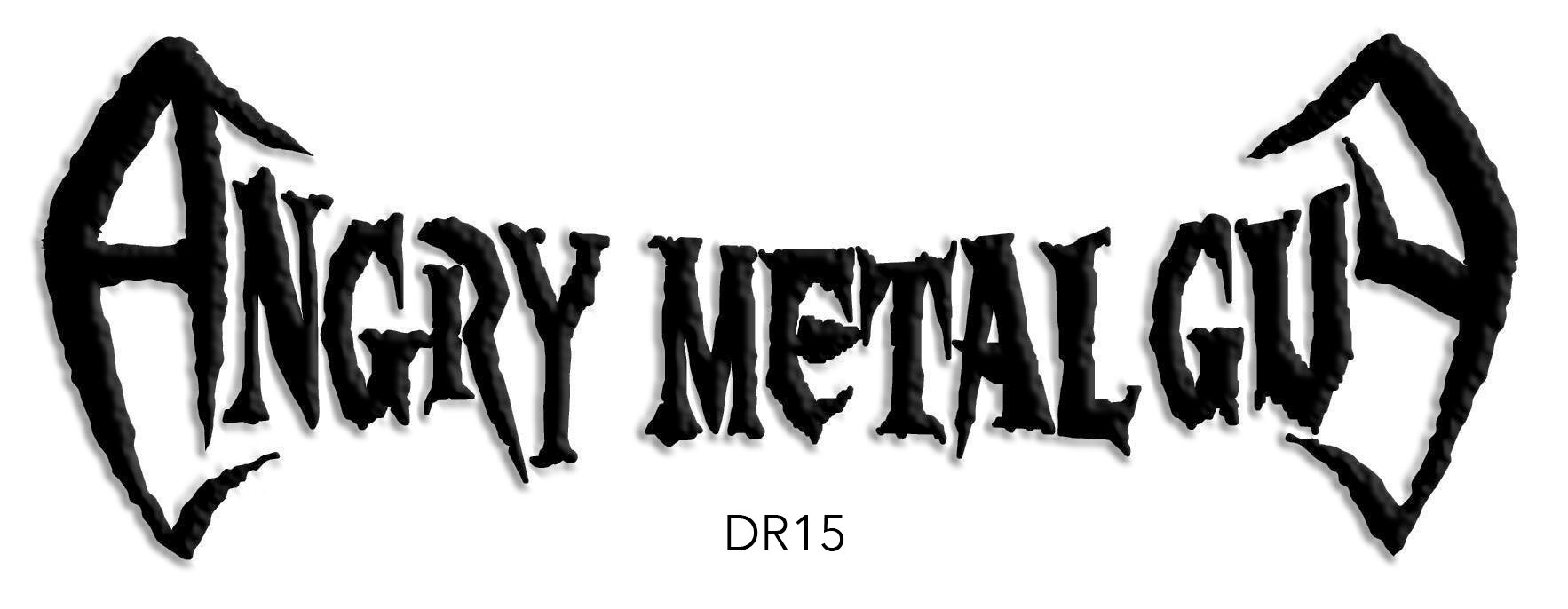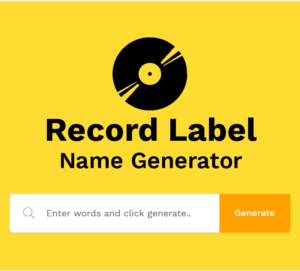 I’ve mentioned in various reviews that I play no instruments and indeed have no musical talent whatsoever. But I am not sure that that fully conveys my amateurishness. I knew nothing about the process of making and recording music. Indeed, it would be fair to say that, when I started writing here, all I had was an instinctive sense of what I did, and did not, like and – or so I tell myself – a reasonable ability to translate those thoughts into written words. Over the 18 months or so I have been a part of Team AMG, not only have my tastes changed but my knowledge has grown considerably and, crucially for today, I have begun to take note of labels.
I’ve mentioned in various reviews that I play no instruments and indeed have no musical talent whatsoever. But I am not sure that that fully conveys my amateurishness. I knew nothing about the process of making and recording music. Indeed, it would be fair to say that, when I started writing here, all I had was an instinctive sense of what I did, and did not, like and – or so I tell myself – a reasonable ability to translate those thoughts into written words. Over the 18 months or so I have been a part of Team AMG, not only have my tastes changed but my knowledge has grown considerably and, crucially for today, I have begun to take note of labels.
Something that has always frustrated my film-buff wife, is my utter lack of interest in who directed a particular film. To my heathen mind, surely, it’s the people on screen, and not behind the camera, that matter. I applied much the same simplistic logic to my metal until relatively recently: surely, it’s the people on record that matter. And that is, of course, true but, the more time I’ve spent reviewing stuff on this here blog, the more I’ve begun to take note of record labels, to the point now that certain labels generate certain expectations for an album. With that realization, I became more interested in labels, how they work and the people behind them.
So, I decided to try and speak to a few labels and ask the people who set up and run them about their backgrounds, their aims and hopes in founding a metal label, and what challenges they’ve faced thus far, as well as what road blocks they see down the road. Here at AMG Towers, we are hugely privileged to receive promo materials from tons of great labels and, frankly, I could have tried posing my amateurish questions to any of them. But I particularly wanted to speak to small, essentially one-person labels, which are the lifeblood of our scene. I also wanted to ensure that I spoke to labels operating in different geographical locations and markets. With that in mind, I approached:
- Nicolas Fernandes-Skog of Hypnotic Dirge Records (Bandcamp), which operates out of Canada;
- Robert Brockmann of Naturmacht Productions (Bandcamp), based in Finland; and
- Kunal Choksi of Transcending Obscurity Records (Bandcamp), operating from India.
I was truly humbled by the responses I got from each of Nic, Robert and Kunal, who all gave up significant chunks of time to answer my questions and give me a sense of what it’s like to run an independent metal label (indeed, I had so many questions and their answers were so full, that this has ended up being two posts).
I am hugely grateful to them for their help with this piece and would encourage everyone to check out their webshops and Bandcamp pages (all linked above) and, if you can afford to, maybe pick something up and support these, and other, labels in this hugely challenging time.
********************************
From humble beginnings …
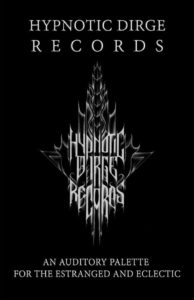 I have mused in the past about the amount of effort and dedication it takes to put out a self-released record. Similarly, I was keen to understand what would make someone suddenly decide to set up an underground record label. Although each of my interviewees came at this from a slightly different angle, they all had the same ultimate aim.
I have mused in the past about the amount of effort and dedication it takes to put out a self-released record. Similarly, I was keen to understand what would make someone suddenly decide to set up an underground record label. Although each of my interviewees came at this from a slightly different angle, they all had the same ultimate aim.
After self-releasing the second album by his own dark ambient project, Ancient Tundra, Nic came to set up Hypnotic Dirge almost on a whim. He was “in the midst of conversation with other musician friends on myspace, I realized that many of them were independent and I thought it might be an interesting endeavor to start up a small label and release their albums as well.” This was back around 2008 and Nic was “mostly releasing albums from friends on limited-run CD-R and trying to learn along the way.” A year later and a continent away, another musician, Robert, founded Naturmacht out of a sense of frustration with “the way many labels did their work, ripping off bands or giving less of the gain to them.” With some savings in his pocket and looking for something meaningful to do with his life more generally, Robert decided to “do something lasting and build something up [and] one day I had the idea to just do a label myself.” Meanwhile, in India, Kunal was running his own PR company and, on the side, a small webzine reviewing music and trying to help promote bands around the world. Approached by an Australian band, The Dead, looking for help to try and find a label, Kunal thought “perhaps I would give it a shot … it couldn’t hurt the band at that stage.” Working with international bands “was a huge challenge from a country like India, which wasn’t really known for its metal scene or bands. But I stuck with it for better or worse and here I am!”
Continuing the theme of his webzine, Kunal’s original idea with Transcending Obscurity was, as the name suggests, “to help bands grow.” That’s a standard he still goes by today but there’s a hierarchy to these things, so he started “in the underground and working with those bands [and] I was able to help them grow and they weren’t so underground anymore after I was done with the release.” When Hypnotic Dirge began, Nic “certainly didn’t have any grand plans,” thinking he would “maybe release music for 1 or 2 years before putting my focus back into writing and releasing my own music, perhaps using my label as a vehicle for my own projects.” Similarly, Robert had no plans “to become big or the next Nuclear Blast” – his mission was simply to be “fair, honest and authentic … [and] to make the costs back!”
A day in the life …
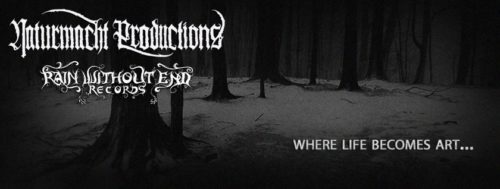
Years on, all three labels are going from strength to strength and, although still relatively small – at least compared to the likes of Nuclear Blast – a day in the life of a metal label boss is pretty full. As Kunal puts it, life running Transcending Obscurity is “way too hectic these days” and “definitely not the kind of ‘label boss’ life you would imagine!” For all three, running as essentially one-man outfits, it’s “a lot of email communication with bands, customers and plants. Social media, photoshop, designing PR material and everything else connected to making a release (sometimes mastering, mixing and designing artworks). So 100% office work,” as Robert explains of life at Naturmacht headquarters.
Nic, Robert and Kunal are all aware of each other, of course, but is there much opportunity to actually interact with other labels, I wondered? “I still trade with other labels or buy their releases for distribution in our shop when I can, although it’s getting harder and harder to find the time … With my workload being what it is, it’s tough to find time to just chat about releases, discuss strategy, or simply ask how they are doing,” says Nic. For Kunal, contact is “minimal.” Being based in India, he feels “pretty much isolated here but of course I have a healthy respect for all of them.” Isolated by choice, rather than geography, Robert prefers to “do stuff completely myself because I have my own way of doing things. He adds that he “also stopped trading, as it has become senseless in the time of the internet.”
From the heart …
“True and honest emotions and music,” said Robert, when I asked him what he looks for in bands to sign to Naturmacht. Unsurprisingly, it’s the same for the other guys: “I mean we’re working with bands from Argentina and Paraguay,” says Kunal, “and I’m not looking at the logistics – it’s all about the music!” The problem, adds Nic, is that there are “so many bands with potential and I’m sure Kunal and Robert can both attest to the fact that it is simply impossible to listen to all the demos they receive, let alone find space in their release schedule for everything that they appreciate.” Robert agrees and has to be “picky these days and I get A LOT of requests. And it’s often great music, but a one man operation got its limits.” Even with all this music coming in – “on almost a daily basis,” as Kunal says – there is still further work to be done, reaching out to bands “usually just by digging through Bandcamp, YouTube or from recommendations from friends,” adds Nic.
With so many demos coming in, I assume that each label pretty much has its pick of who to sign? Not quite. And this is where regional differences begin to creep in. While Robert, operating out of Europe, says he does not try to persuade bands to sign up to Naturmacht. Instead, he shows “my offer, we talk about it or not (because they do not answer). But if a band does not like the offer, I do not run after them … There are enough great bands out there and I also treat all bands the same if possible.” The life of a metal label in India is a bit different though, as Kunal explains that a lot of bands are “skeptical probably because of where I’m from. It’s inconceivable for them to work with a label from India.” Although Transcending Obscurity has, well, become a lot less obscure and “it’s a lot easier now than it was a few years back,” Kunal still has “bands tell me that they wouldn’t work with me because I’m from India and that they’d rather work with a smaller but local label, which defies logic … [and] it sucks to lose a good band that you feel would be a good fit for the label.”
A true partnership …
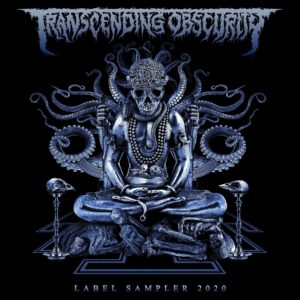 “We become friends,” says Kunal of the day-to-day of working with the bands signed to Transcending Obscurity, “ideally I want it to be like a family and would like things to be smooth and mutually beneficial, with monetary aspects being secondary to good working rapport. So far I’ve been pretty successful at that…” Robert concurs: “I always want to create cooperation based on trust and, if possible, friendship” with the bands on Naturmacht. Nic is also in touch with Hypnotic Dirge’s bands as much as possible and, while it’s “more regular contact in the run up to a release and shortly afterwards,” there is always something to discuss, ranging from “non-release specific merch and music videos to royalties etc., so yeah, it’s pretty constant.”
“We become friends,” says Kunal of the day-to-day of working with the bands signed to Transcending Obscurity, “ideally I want it to be like a family and would like things to be smooth and mutually beneficial, with monetary aspects being secondary to good working rapport. So far I’ve been pretty successful at that…” Robert concurs: “I always want to create cooperation based on trust and, if possible, friendship” with the bands on Naturmacht. Nic is also in touch with Hypnotic Dirge’s bands as much as possible and, while it’s “more regular contact in the run up to a release and shortly afterwards,” there is always something to discuss, ranging from “non-release specific merch and music videos to royalties etc., so yeah, it’s pretty constant.”
As to how interventionist the label bosses are when bands signed to them are working on new material, there were differences of approach. “I will make my opinions heard if I notice there are things that can be improved on,” says Nic but “I try to stay out of the way as much as possible” when it comes to the music itself. Of course, Nic is involved in discussions around artwork, including for the digipacks, merch, promotional social media and more. Similarly, Kunal gets involved in those aspects of his bands’ work. “Of course I do!” he says, “I can tell a good artwork from a bad one. It’s not my opinion over the band’s but what’s ultimately better for the release,” and, he adds “it’s worked reasonably well of late,” even if it sometimes adds a bit of extra time. He points to the choice of Dan Seabrook’s eye-grabbing artwork for Paganizer’s The Tower of the Morbid as one he had a hand in choosing, and also adds that Mark Riddick of Fetid Zombie (who are signed to Transcending Obscurity) has been “extraordinarily kind in hooking us up with artworks right from the beginning.”
By contrast, Robert admits he gets “involved a lot. Many bands show me demos, or I help with the mix, master … or design the artwork myself.” That is part of the deal he offers with Naturmacht, he says, “and here and there I also contribute guest vocals.” Although some bands do it all themselves, Robert says “I really love to participate, because then I become part of the music. And it’s not just another album you put out and collect money for.”
A reviewer’s life for me…
Given what we at AMG do most of the time, I had to ask: do reviews – positive or negative – have any kind of impact on sales? Nic’s view is that the impact of reviews is “something that is hard to quantify,” although there are “certainly times when I notice an uptick in sales of a particular record after a positive review on AMG or a similar website,” and premieres and year-end lists can also help in this regard. Robert began by gently stoking our collective AMG ego – not that it needs it, I should add, we’re already pretty pleased with ourselves – noting that although he rarely reads reviews these days, AMG “is one of the few I really enjoy reading, because it is certain that you guys put the effort in and it is excellent writing.” Build ‘em up, to knock ‘em down, as they say, as Robert continues that, while you can never really know why someone buys a record “mostly it [reviews] has nearly no effect, I think … [Maybe] with the music overload, people might turn back to webzines as some kind of filter. But I had releases which had no reviews and sold out, and I had releases with a lot of high ratings and sold shitty.”
Interestingly, Kunal also feels that, with the sheer volume of music available to us all now, you “need some kind of guidance or reference when it comes to even checking out new music and that’s where I feel reviews help. It doesn’t hurt if the said source carries credibility, which can’t be created easily, and that I would say Angry Metal Guy has in spades.” You’re too kind Kunal! I was also excited to hear Kunal explain the direct impact that he has seen AMG have for one band on Transcending Obscurity: “We were fortunate enough to have two of our releases – Eternal Storm and Gaerea – featured as the record of the month on your site and it definitely impacted sales big time. We wouldn’t have made vinyl for Eternal Storm without that happening!”
********************************
If you’re reading this, then you either skipped to the end (tisk!) or you read all the way here (huzzah and thanks!). Either way, if you’ve reached this point you may like to know that, in the second part of this interview, I talked to Nic, Kunal and Robert about everything from the (apparent) obsession with vinyl and merch in a digital age, to what each of the label bosses have seen change in recent years and what challenges they anticipate down the line. We also discussed whether they see a risk of labels becoming obsolete and the challenges they all face now, with the Coronavirus pandemic.
At the end of that second post, I will also link to the full text of the interviews, so that those who wish to can read Nic, Robert and Kunal’s thoughts for themselves, unadulterated by my attempts at prose.

